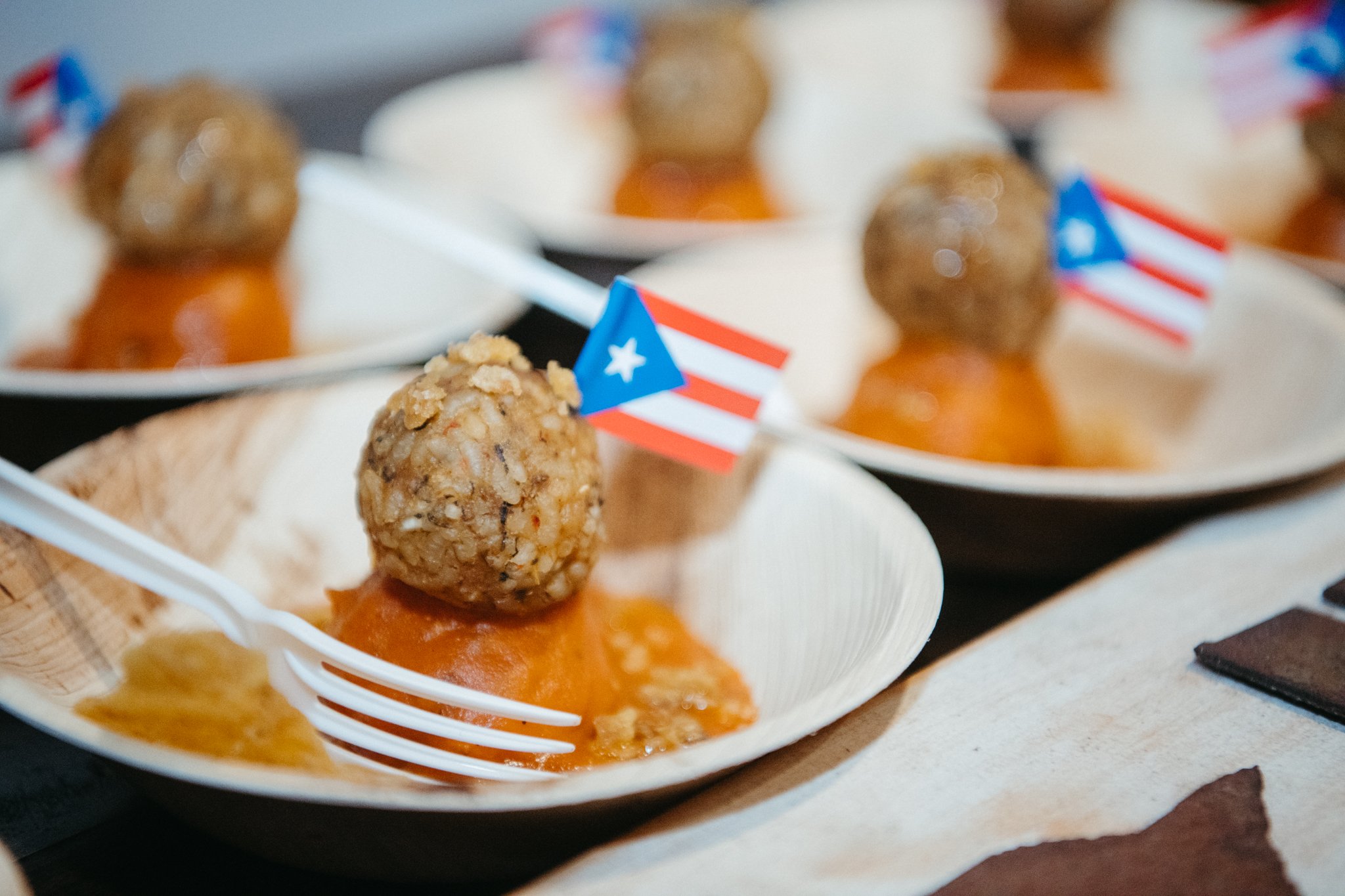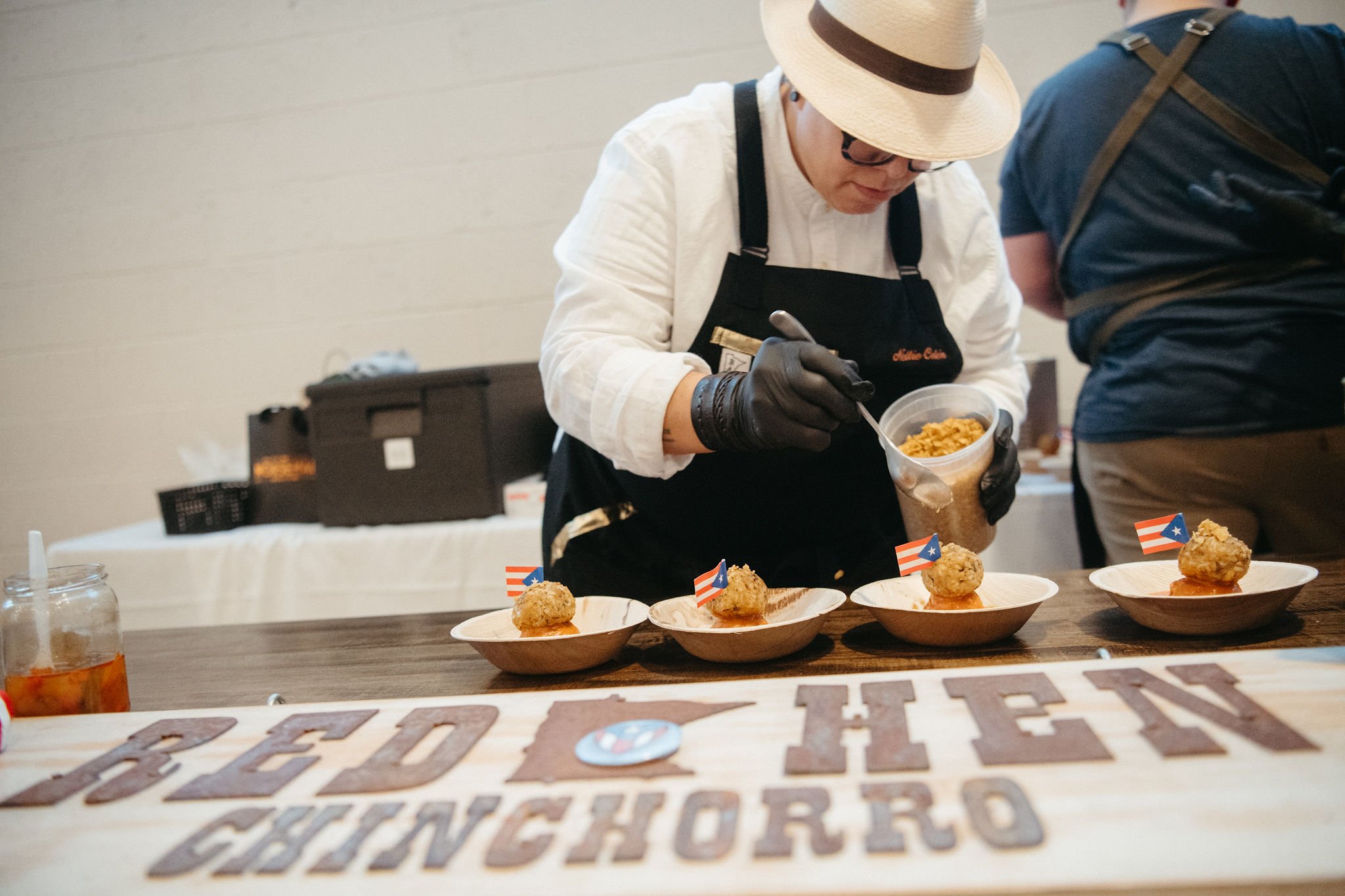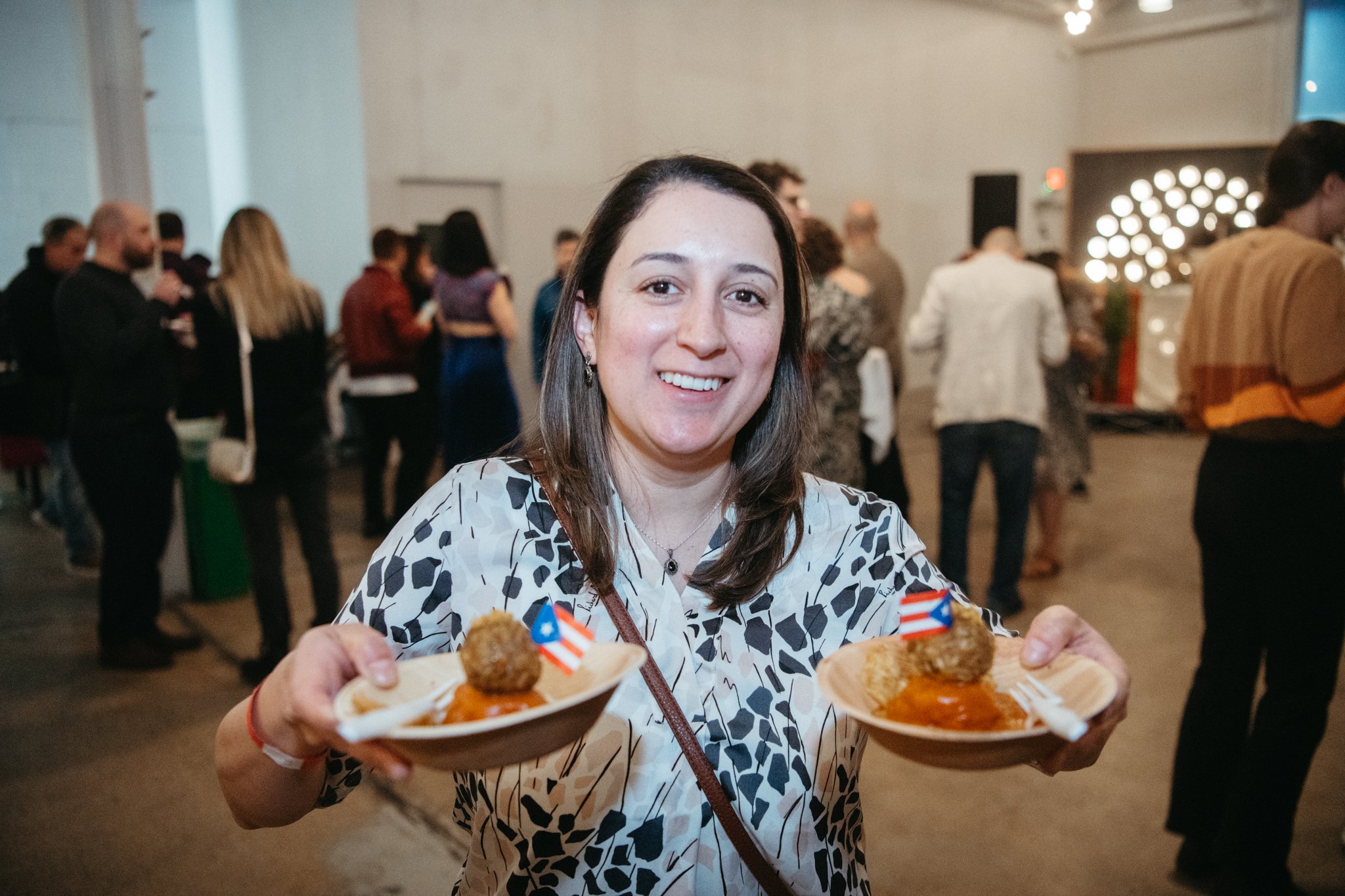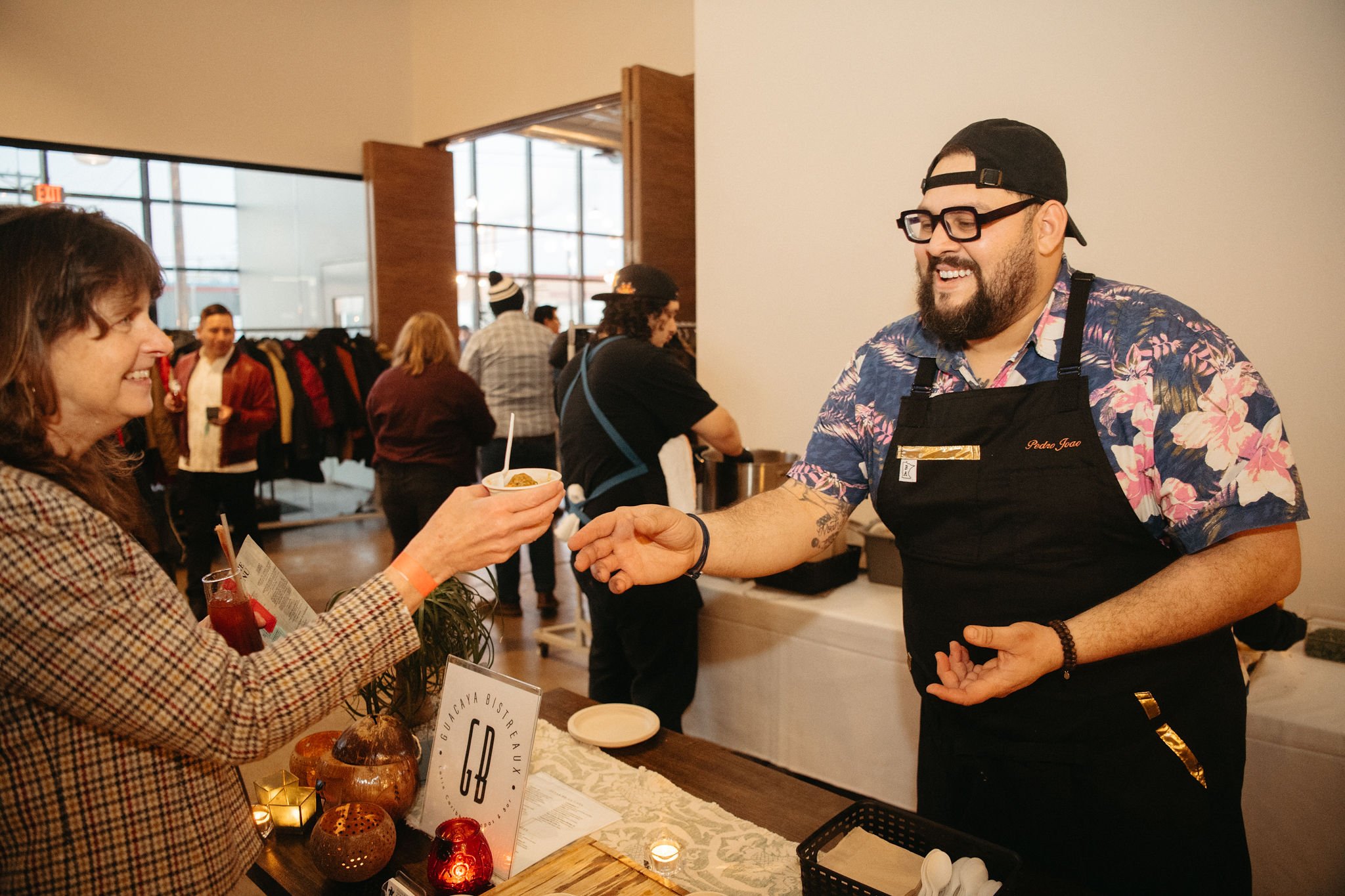Not Just Another Word for Kitchen
The pursuit of home keeps K’óoben Minnesota grounded.
By Mecca Bos
K’óoben pop-up returns to The Great Northern on February 2, 2025.
Being together—that’s the most important part.
I’ve heard it reported extensively. For transplants, Minnesota can be a very isolating place, particularly if you are a transplant of color, and particularly particularly if you are a migrant from another culture. For all of our “Minnesota nice,” seems we are not always the most welcoming lot.
And in any case, there’s no place like home. One of the most evocative ways to conjure home? Food.
K’óoben, a collective of Latinx culinarians, takes its name from a Mayan word that loosely translates to “kitchen,” which in Mayan also holds these meanings within that seemingly simple word: “friendship, family, collaboration and coexistence.”
But evoking home through the lens of food is not necessarily the easeful proposition it may seem like on the surface. It’s not just a matter of breaking out some pots and some pans.
In only three and a half years of restaurant ownership in the Twin Cities, Gustavo Romero has become an ad hoc spokesperson for Mexican cuisine locally. His nixtamalized tortillas using heirloom corn varietals are the gold standard for Twin Cities tortillas, and like any pizza connoisseur knows: the secret to a good outcome starts at the foundation. A taco isn’t really a taco without a solid tortilla. He’s also a co-founder of K’óoben.
“We have to adapt,” he explains. “The farther away you are from the border, the more difficult it becomes to be able to do whatever you want to do, just because of the lack of product and the lack of open-mindedness. A lot of ethnic restaurants have to adjust their menus to be a little more accommodating to the Midwest palate.”
But not at K’óoben. At a K’óoben event, arriving at a taste of home comes more easily because there is no one to appease but each other—and everyone here is after the same goal.
Noe Lara arrived in Minneapolis as a transplant 18 years ago. He comes from a food family—his parents owned fish markets and seafood restaurants in Mexico. But his first job in Minneapolis was at a French place.
“We used a lot of butter and I'm like, ‘Oh my God. How do people eat this much butter?’ Butter on everything.”
And while he loved learning new cuisines, when he got home, he cooked Mexican food. Mexican every day. But still, the truly legit flavors of home could be super difficult to come by.
Barbacoa is the dish of Lara’s hometown of Hidalgo. Can you get a proper barbacoa in Minneapolis? No.
“I don't think I don't think you can get it.” says Romero. “There’s something different, the way it cooks underground—the way it steams the flavor from the maguey [agave] leaves. It’s just very hard to make. We have all tried to do it in the oven, buying big beef parts.”
But alas, it wasn't the same. In order to get the consommé correct—arguably the best part of a barbacoa—a pot has to be placed beneath the whole animal, and the juices drip underneath, collecting into a soup that gets served next to the very best barbacoa tacos. Lara even tried to start with making the consommé first, and then a taco to dip into it. It turned out really, really good. But still, of course it wasn’t the same.
But barbacoa is the dish he dreams of. So this summer, K’óoben will try to make that proper barbacoa, together.





Danny Torres is a mixologist by day—or more accurately by night—at Iconos Gastro Cantina in Uptown, and concocts the liquid components to K’óoben’s creations.
“The reason I'm so drawn to K’óoben is that I wasn't born in Mexico—I was born here in the States, and growing up I really had a longing for my culture back home. I would go every few years and I would always feel a little disconnected.”
But the longing for something you never really had is one of the things that drives many of us to seek out our foodways more fervently.
“It still runs in my roots, but because I was raised here, I don't know a lot about the culture. So K’óoben—it's more or less finding myself, finding a family, and identity with the food.” Lara’s mezcal -and tequila-laced cocktails ensure that the party always stays lit.
“I think this just runs in the blood—our culture. We're all just like, ‘Hey, come here, let me grab you a dish or a drink real quick.’”
Which is where K’óoben as a service comes in—the collective’s pursuit of home also provides an extended family for those of us who are willing to accept the invitation. To allow them to grab us a drink or a dish.
It’s also a place to go beyond the Midwestern idea of what Mexican food is, and engage with the Indigeneity that is at the foundation of Mexican food. There’s a reason why K’óoben is a Mayan word, and not a Spanish one.
Jose Alarcon is a member, formerly executive chef of Popol Vuh, the now-defunct restaurant that took its name from a sacred text recounting the mythology and history of the Mayan people.
Tlyudas, a dinner plate-sized fried tortilla of Oaxacan origins, and ensalada de la milpa, referring to an Indigenous growing system of maize, pumpkin, pepper, and tomato, are two examples of K’óoben dishes reaching into Mexico’s Native cuisine—less easy to find at local taquerias or standard Mexican restaurants.
But K’óoben isn’t a place to chase a dubious notion of “authenticity” or novelty.
Like words, food is imbued with worlds more than just their surface meaning. If a dish, or a drink, could hold the blueprint for finding the path home, K’óoben is striving to serve it.
K’óoben hosts a special pop-up for The Great Northern at Glass House on Sunday, February 2. More information and tickets at thegreatnorthernfestival.com.
Mecca Bos has been a Twin Cities-based food writer and chef for more than 20 years. Her work can be found both locally and nationally. She is an award-winning podcaster, and she is founder of BIPOC Foodways Alliance, an organization with a mission to dismantle white supremacy through the lens of food. Her favorite food is noodles. Noodles of all shapes. Subscribe to her Substack here.



